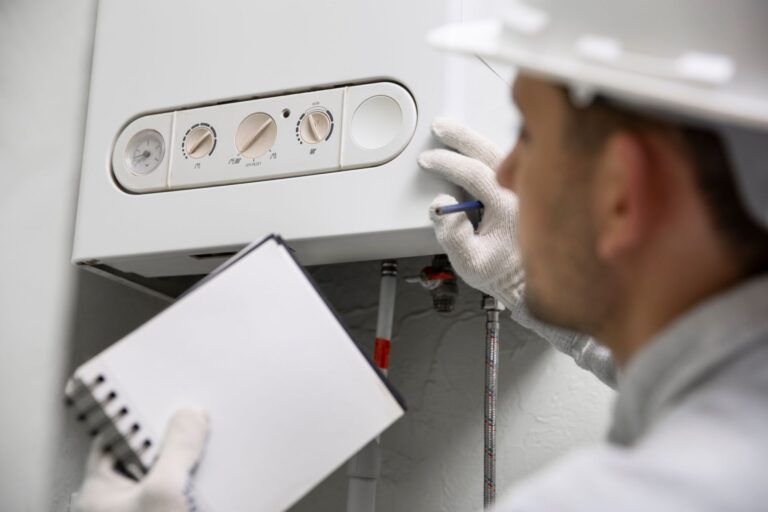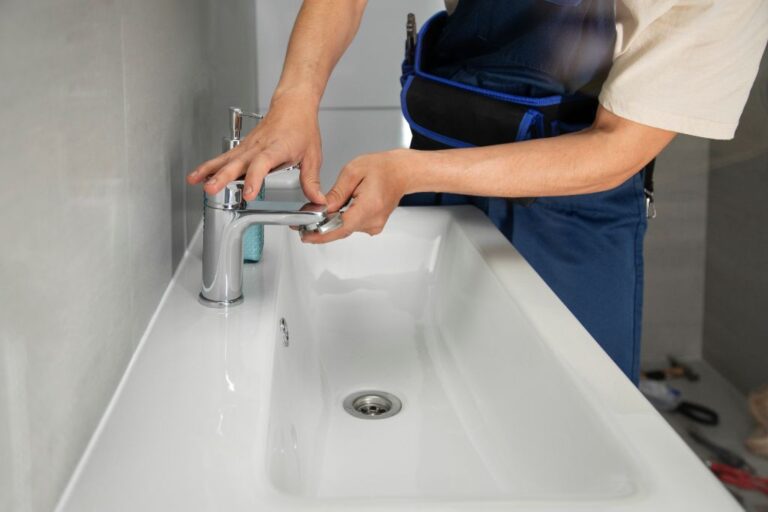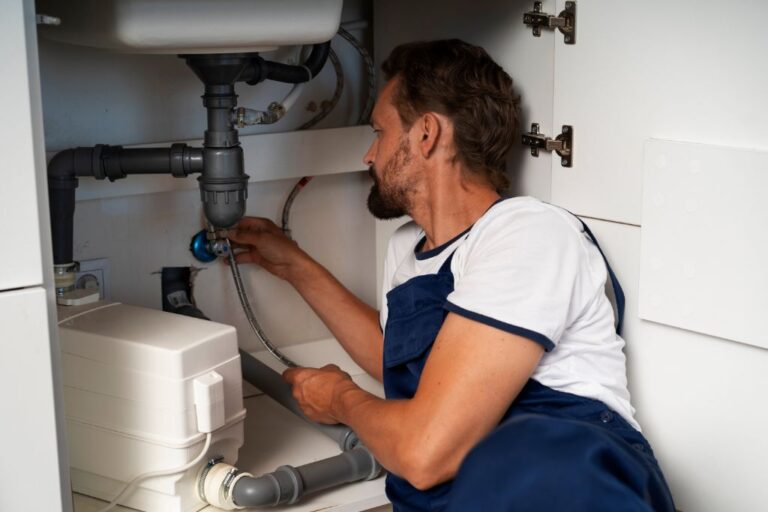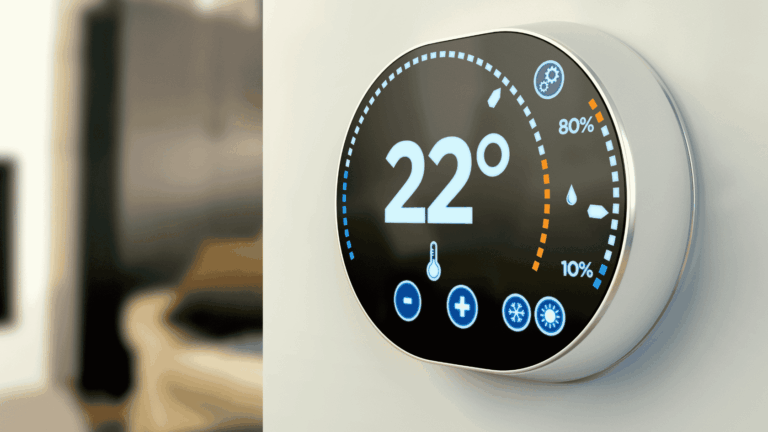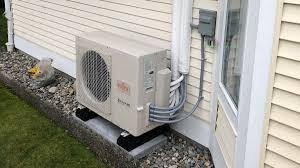Clogged drains are one of the most common household plumbing issues. When water starts draining slowly or backs up completely, many homeowners instinctively reach for a chemical drain cleaner. These products promise quick results with minimal effort, but what they don’t tell you is the potential damage they can cause to your plumbing, your health, and the environment.
Before you pour that bottle down your sink or tub, here’s why you should think twice. While they may seem like a quick fix, chemical drain cleaners often mask the real problem instead of solving it. In many cases, the damage they cause can lead to costly repairs that far outweigh the convenience.
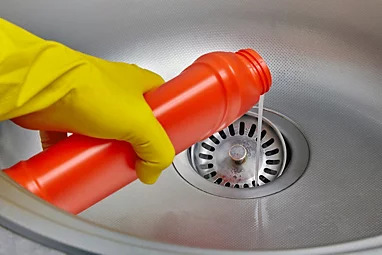
What Are Chemical Drain Cleaners?
Chemical drain cleaners are liquid or gel-based products designed to dissolve clogs in pipes caused by hair, grease, soap scum, food particles, or other organic debris. They are widely available at hardware stores and supermarkets, often marketed as quick, do-it-yourself solutions for slow or backed-up drains.
There are three main types of chemical drain cleaners:
- Caustic Cleaners – Contain substances like lye or caustic potash. These cleaners create a chemical reaction that generates heat to break down greasy or fatty clogs.
- Oxidizing Cleaners – Use bleach, nitrates, or peroxides to dissolve organic material by causing it to lose electrons. These are often marketed as “foaming” or “powerful” cleaners.
- Acidic Cleaners – Contain sulfuric or hydrochloric acid. These are the strongest and most dangerous types, typically used by professionals due to their corrosive nature.
Health Risks of Chemical Drain Cleaners
Chemical drain cleaners may seem harmless, but their potent ingredients can pose serious health hazards, especially when used frequently or improperly. Many of these products contain toxic substances like lye, sulfuric acid, or bleach, which can cause immediate and long-term health issues.
- Respiratory Irritation: When poured down a drain, chemical cleaners release fumes that can irritate the lungs, nose, and throat. Prolonged exposure, especially in poorly ventilated areas can trigger coughing, shortness of breath, or even exacerbate asthma and other respiratory conditions.
- Skin and Eye Burns: Even a small splash of a chemical drain cleaner on your skin or in your eyes can lead to painful burns, rashes, or even permanent damage. These products are highly corrosive and require extreme care when handling.
- Accidental Poisoning: Drain cleaners are one of the top causes of household chemical poisoning, particularly in children and pets. Ingesting even a small amount can be life-threatening and requires immediate medical attention.
- Long-Term Exposure Risks: Repeated exposure to the harsh chemicals found in drain cleaners may increase your risk of developing chronic conditions over time. Some compounds have been linked to hormone disruption and other systemic health effects with ongoing use.
- Improper Mixing Dangers: Mixing different cleaning chemicals can create dangerous reactions. For example, combining a drain cleaner with bleach or ammonia may release toxic gases that can cause serious respiratory harm or even be fatal.
Environmental Impact of Chemical Drain Cleaners
While chemical drain cleaners are often marketed for their convenience and effectiveness, their use can have serious consequences beyond your home, especially for the environment. These products don’t just disappear after they clear a clog; the chemicals continue to travel through your plumbing system and into the local water supply.
- Water Pollution: Once flushed down the drain, toxic chemicals like sodium hydroxide, sulfuric acid, and bleach can end up in rivers, lakes, and groundwater. These substances are harmful to aquatic life, disrupting ecosystems and contaminating drinking water sources.
- Harm to Wastewater Treatment Systems: Many municipal wastewater treatment plants are not equipped to fully remove the harsh chemicals found in drain cleaners. These toxins can interfere with the treatment process, reduce water quality, and increase the environmental burden on local infrastructure.
- Soil Contamination: The EPA advises against pouring harsh chemicals like drain cleaners into septic systems, as they kill the beneficial bacteria needed to break down waste and can lead to system failure.
- Toxic Residue and Packaging Waste: Many drain cleaners come in plastic containers that are difficult to recycle, and any residue left behind poses a risk during disposal. Improper handling or leakage at landfills can release toxins into the environment.
Better Alternatives for Clearing Drains
The good news? You don’t have to rely on harsh chemical drain cleaners to fix a clogged sink or tub. Safer, eco-friendly, and more effective methods are available, many of which are just as convenient.
- Mechanical Tools: A simple plunger, drain snake, or auger can remove most clogs without harming your pipes.
- Natural Solutions: Try pouring boiling water, followed by baking soda and vinegar. Let it fizz and flush again with hot water.
- Hydro Jetting: A professional method that uses high-pressure water to clear stubborn blockages safely.
- Enzyme-Based Cleaners: These cleaners use natural bacteria or enzymes to break down organic material without damaging plumbing or the environment.
Don’t risk your pipes or your health with harmful chemical cleaners
The team at Steve & Weber Plumbing & Heating offers safe, professional drain cleaning services that protect your plumbing and the environment. Whether it’s a stubborn clog, toilet issue, or water heater concern, we’ll diagnose and fix the issue the right way, no shortcuts, no damage.
Call 518-201-0948 us today to schedule your service or request a quote.

